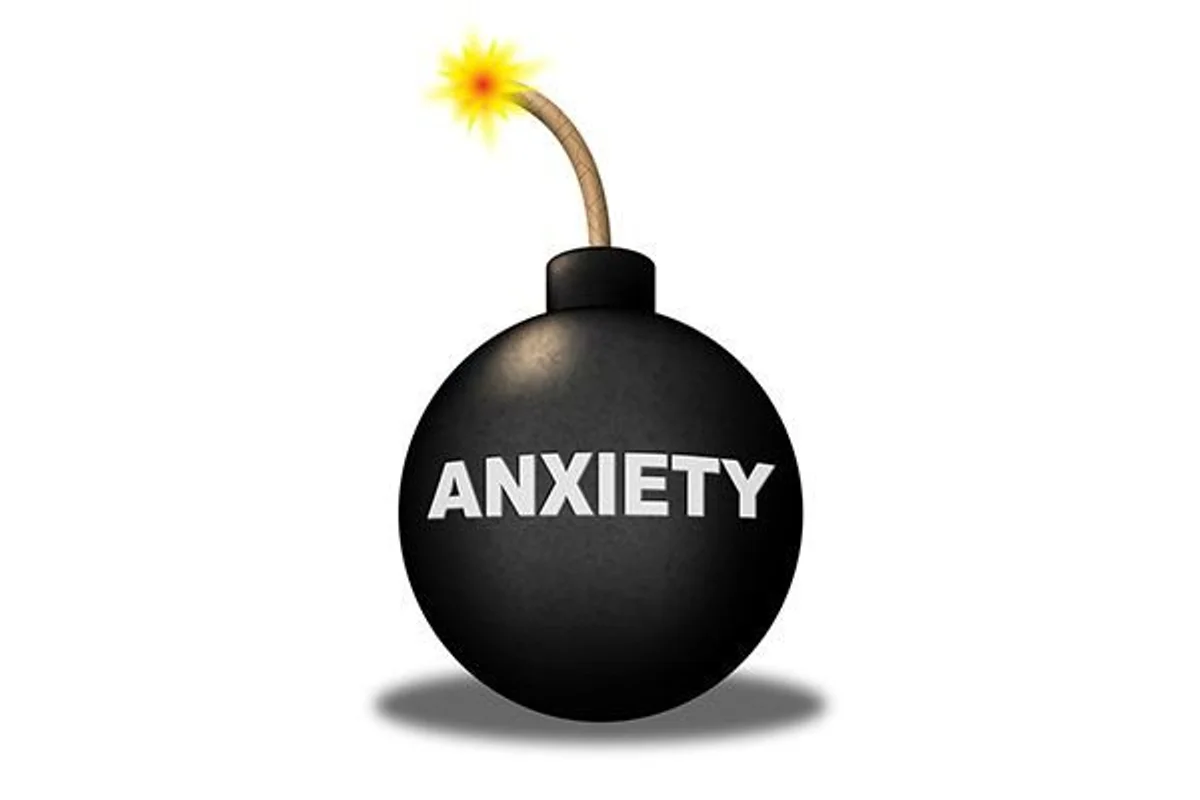Anxiety is part of everyday life—something we all occasionally experience. Whether we're faced with making an important decision, preparing to take a test, or dealing with a problem coworker or boss, there it is.
That kind of mild and brief anxiety is OK—and even expected. In a way, it can be a good thing, warning us to take precautions and prepare for what may come our way. Scientists call it an "adaptive human experience" that helps us face imminent threats or dangers.
Yet, there are times when anxiety persists beyond the norm and becomes what's known as an anxiety disorder. Rather than short-term fear or worry, this type of anxiety can interfere with everyday activities and worsen over time. It can prevent us from performing well at work, at home and in our relationships.
That's the type of anxiety you really don't want. Aside from getting in the way of everyday life, studies show that people with anxiety disorders have a greater risk of developing some chronic medical conditions; they also have more severe symptoms and an increased risk of death if they become ill.
The good news? You can do something about anxiety. It's treatable with medication, certain types of psychotherapy or a combination of both.
Another way to side-step anxiety is to be proactive about preventing it.
Be prepared. Be ready. Know the triggers.
Some of these triggers may surprise you:
High-Fat Foods
Aside from the obvious unhealthy benefits, eating a heavy meal can disrupt your sleep cycle, making you wake throughout the night. And what happens when you don't get enough sleep or good-quality sleep? That sleep deprivation can translate to poor physical health AND poor mental health. It's tough not to feel irritable and anxious when you're sleep deprived.
Best things to eat: complex carbohydrates like oatmeal, quinoa and whole-grain breads and cereals, which may increase the serotonin in your brain (which in turn has a calming effect).
Food Additives
Though the jury is out on the relationship between food additives and anxiety, there are many people who are sensitive to certain food additives. The Mayo Clinic says that some people can have physical reactions, which in turn lead to moodiness, irritability or anxiety.
Some food additives reported to create anxiety include aspartame, monosodium glutamate (MSG), sodium benzoate and certain blue and red food dyes.
Dehydration
Don't wait until you're desperately thirsty to drink water. Staying well hydrated can help prevent the mental, mood and cognitive problems that arise with even mild dehydration, according to two studies from the University of Connecticut Human Performance Laboratory. A study out of Tufts University found that even mildly dehydrated student athletes reported feelings of anger, confusion and tension.
Over-the-Counter Medications and Supplements
Many medications—including some decongestants, asthma medications, cough medicines and headache and migraine relievers—contain caffeine, which can make you jittery, make your heart race and make you feel anxious. Watch out for some thyroid drugs, too.
And just because herbals are "natural" doesn't mean they can't affect you: popular remedies like St. John's wort and Asian ginseng may cause frazzled feelings.
Thyroid Disorders
The risk of an underactive thyroid gland (or hypothyroidism) rises with age, affecting 20 percent of women over 65. The deficiency in the hormones produced by the thyroid gland, if left untreated, can affect moods, causing depression and memory problems, as well as anxiety.
Sources:
https://www.webmd.com/diet/the-truth-about-seven-common-food-additives
https://today.uconn.edu/2012/02/even-mild-dehydration-can-alter-mood/
https://www.mayoclinic.org/diseases-conditions/generalized-anxiety-disorder/expert-answers/coping-with-anxiety/faq-20057987







